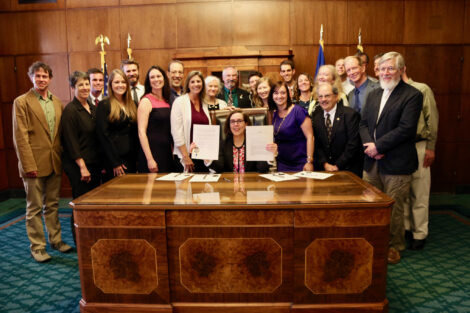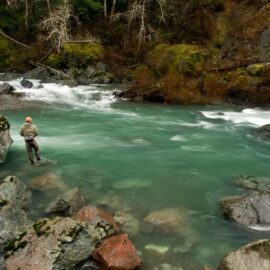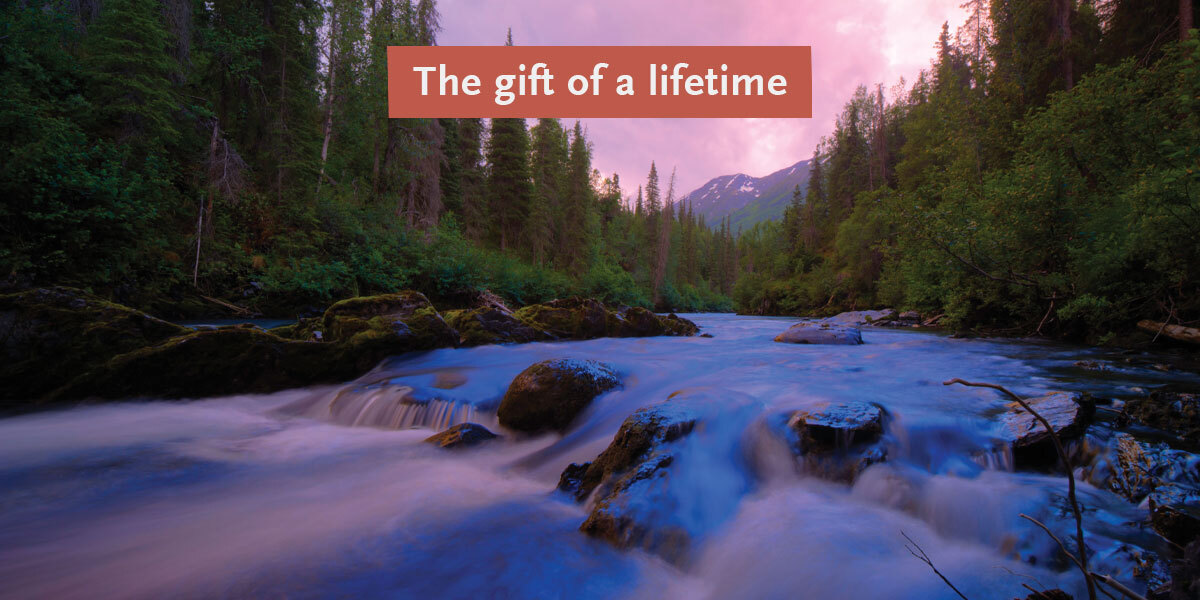Suction dredge mining reform and Elliott State Forest protections passed this session.
The 2017 Oregon Legislative session began with a large, looming budget deficit and it was dominated by debate about raising new revenues and funding transportation improvements. But despite tough odds, Wild Salmon Center came away from the session, which finished July 10, with significant progress on our top three priorities.
The 82,500-acre Elliott State Forest has been in the headlines because of a serious risk of privatization over the last year. In May, a unanimous vote by the State Land Board cancelled a pending sale process in a positive turn of events. But there was still plenty of work to be done down the street in the state capital to conserve the Elliott. Because the forest is mandated to produce revenue for the Common School Fund, mainly through timber harvests, continued public ownership required that revenues be found elsewhere to conserve at least part of the forest.
Thanks to leadership from Governor Brown and Senate President Peter Courtney, the legislature passed $100 million in bonding to decouple it from revenue mandates and protect the critical old growth and riparian habitat in the Elliott. A long-term plan for the Elliott will begin to be developed later this year and we’ll be working vigilantly to protect the key salmon habitat within the forest throughout that process. For now, we can breathe a sigh of relief.

After being banned in California in 2011, Suction Dredge Mining became prevalent in Oregon’s waterways. The practice can be immensely damaging to fish and fish habitat, but efforts to curtail its impact in Oregon had fallen short in previous sessions. Thanks to a large coalition of groups, rock solid scientific testimony from Wild Salmon Center Science Director Matt Sloat, and the leadership of Sen. Michael Dembrow, the Legislature passed SB-3, which restricts suction dredge mining on essential salmon habitat across Oregon. The bill is the product of a multi-stakeholder, bipartisan effort to find a solution that works for fish and people. Moreover, the bill is part of late Sen. Alan Bates’ legacy. Sen. Bates passed away last year but was a champion of the effort for several sessions. SB-3 is named after Bates’ senate district in Southern Oregon.
Icing on the cake came in the form of the Trust Lands Transfer bill (SB 847) carried by Sen. Arnie Roblan of Coos Bay. The legislation creates a mechanism to incrementally decouple public lands from revenue mandates—it’s a solution to the Catch-22 of having to choose between conservation and funding public services via timber harvests on state-owned lands. The legislation is modeled after a successful program in Washington State and should prove to be a critical tool for conservation efforts moving forward.
It was a hugely successful session, but the nature of politics is that we did not get everything we wanted. Oregon’s natural resource agencies are still underfunded and there is not adequate money to carry out extensive and needed study of our water resources across the state. We will continue to work to solve these issues with legislators and partners in Salem in the interim period and future legislative sessions.




